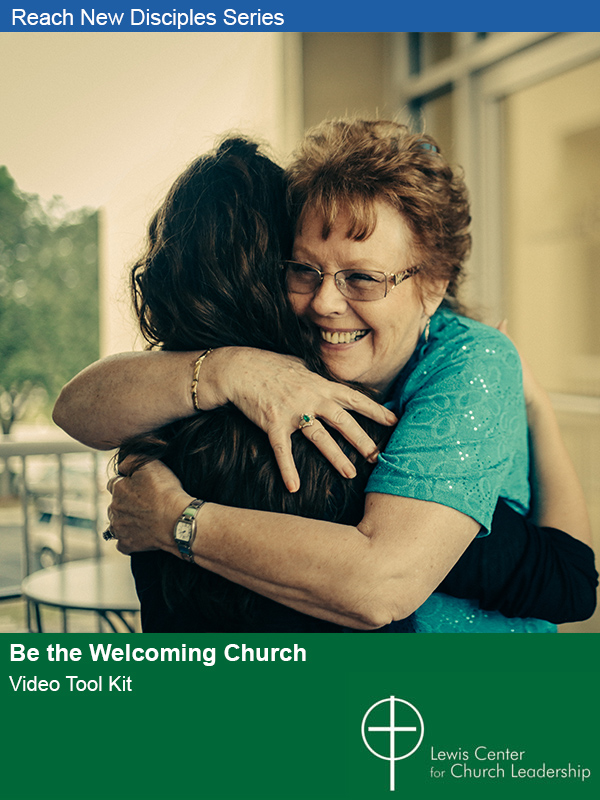Robert Schnase writes that a church can impact the number and quality of future pastoral leadership by having an effective youth ministry. Mentors can help youth interpret their calls and support them as their journeys unfold.
This article was originally published on August 13, 2008.
The other day I was driving down the interstate when I pulled into a roadside rest stop. Just as I stepped from my car, a long bus pulled up that had a sign that ran nearly the entire length with the name of a United Methodist church from North Carolina. A whole herd of youth poured out and headed for the restrooms as exhausted, sunburned sponsors joked and bantered with the young people. They were returning from a mission trip and still had many miles ahead of them.
I’m always deeply gratified to see the commitment, hard work, and love that so many adult sponsors pour into the lives of young people to teach them the faith, and model how to serve, pray, give, and treat one another in the name of Christ. Sponsors and youth pastors like those I saw on the road that day helped form me and shape me. Without them, I might not now be a Christian, and certainly would never have discerned God calling me to ministry.
There is a direct connection between strong local congregational youth ministries and the call to ministry. Obviously, there are tons of benefits besides this that result from strong youth ministries — lives changed, faith taught, young people supported through hard times, ethical shaping, community bonding in Christ, etc. But if your church wants to impact the number and quality of future pastoral leadership, begin by having an effective youth ministry, even if it’s small.
Recently, our Board of Ordained Ministry and Cabinet studied the ministry supply patterns for our conference to learn who is coming into ministry, by what channels and means, into what status and order, at what age and for how long, of what gender and ethnicity, and how they leave (transfer, withdraw, retire, or die). We learned much about the “streams” that flow into the river of pastors — elders, deacons, local pastors, associate members, and lay ministers — who serve our conference. It was fascinating. There were some hopeful signs, like the increasing number of younger pastors entering ministry, and some cause for concern, like the huge number of pastors eligible to retire in the next few years.
As we talked about the streams that feed ministry and the channels by which people discern the call, what do you suppose is the greatest source and setting for people exploring the call at an early age? Camping? Campus ministries? Parental influence? Conference youth weekends? Mission experiences? All of these are minor sources compared to two major predictors of young people entering the ministry. First, the greatest predictor is participation during the high school years in a high-quality youth ministry in a local congregation. The second is having a pastor/mentor during the high school years who encourages, supports, and interprets the call for the young person. Being part of an active, positive youth ministry likely involves mission experiences, camping, conference youth programs, and may lead to campus ministries, but the most significant common element is the local congregation’s youth ministry.
Want to assure that your church has positive, high quality, committed, effective clergy leadership during the years to come? The first and best thing your church can do is have a great youth program, a youth ministry that teaches young people how to worship and pray, how to grow in faith and feel comfortable with scripture, how to serve others and make a positive difference in the lives of people, and how to give generously. A positive youth ministry and an encouraging pastoral mentor make all the difference.
As I got back in the car after my brief encounter at the roadside rest stop, I wondered about all those youth. Some will return from this summer mission trip and move on to their next adventure with little gained or nothing learned. Some are being formed by the spirit of God through this experience into people of faith who will lead our churches as laypersons, community leaders, service professionals, and people of integrity and prayer. For a few, this summer may mark a turning point in their lives, a moment graced by the spirit of God for special change and growth. And for a very few, this summer may be the season when God tugs on their hearts toward the high calling of full-time Christian ministry.
How is your youth ministry doing this summer? How are you doing at preparing the soil for the seeds of the spirit to raise up a new generation of Christian leaders?
This material is adapted from Robert’s blog at fivepractices.org.
Related Resources
- The Changing Contours of Youth Ministry featuring Deech Kirk — Leading Ideas Talks podcast video | Podcast audio version | In-depth interview
- Close Generation Gaps, Deepen Relationships by Laura Buchanan
- 5 Compass Points Guide Character Formation and Lifelong Discipleship for Youth by Kara Powell, Jen Bradbury, and Brad Griffin







